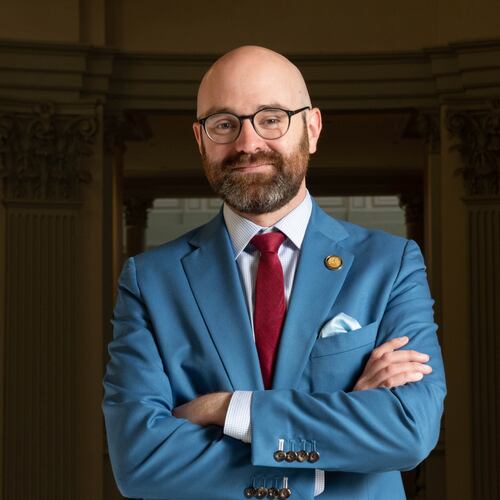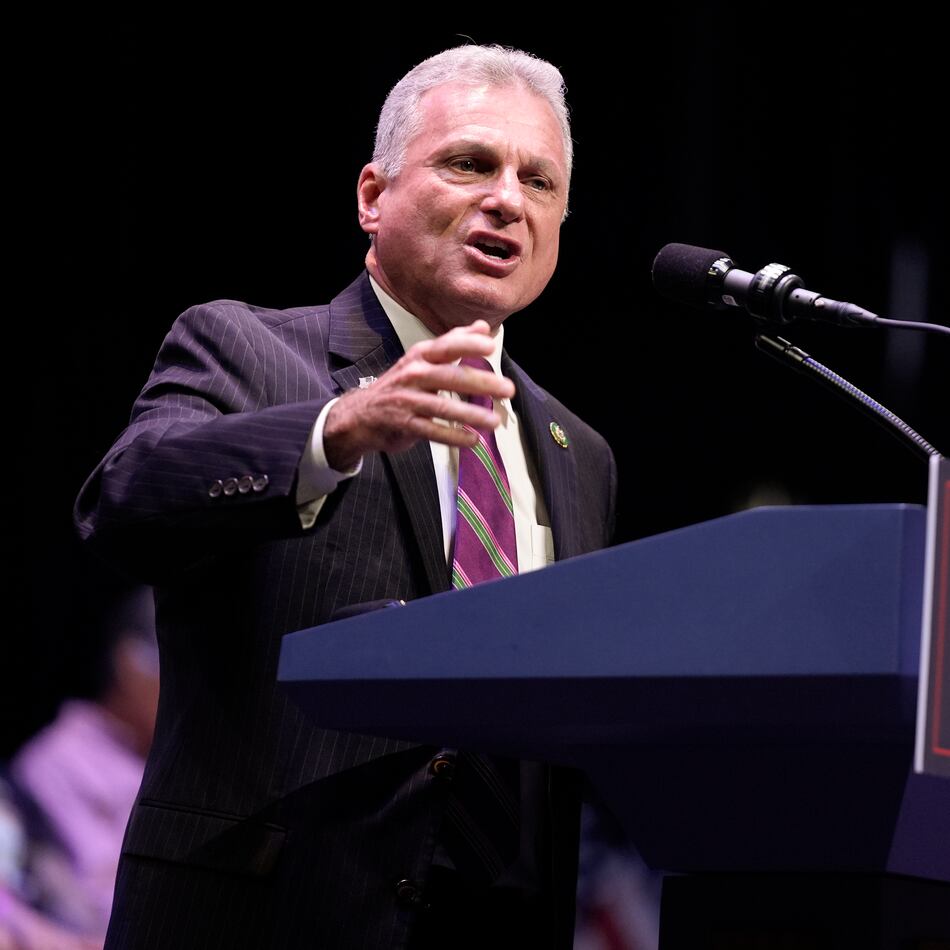Campaign spending in Georgia for the general election
Hillary for America (official campaign committee): $307,000
Hillary Victory Fund (joint Clinton-Democratic National Committee fund): $1.60 million
Donald J. Trump for President (official campaign committee): $233,000
Source: Federal Election Commission
Six days until vote
Only six days remain until Election Day on Tuesday. All year, The Atlanta Journal-Constitution has brought you the key moments in federal and state races, and we will continue to cover the campaign’s main events, examine the issues and analyze candidates’ finance reports until the last ballot is counted. You can follow our political coverage on our politics page at myAJC.com or track us on Twitter and Facebook.
It may feel like the election is impossible to escape in Georgia. But as omnipresent as it might be, it could be worse — we could be living in Florida.
Despite recent polling that shows a tight race in Georgia, the presidential campaigns and their allies are spending relatively little money here compared with other political battlegrounds, an Atlanta Journal-Constitution analysis of federal filings found.
That means Georgians are barraged with far fewer political advertisements on their televisions, radios and computer screens than their peers in the Sunshine State, Nevada or Pennsylvania.
Hillary Clinton’s camp has directly spent about $1.9 million in Georgia in anticipation of the general election. That figure includes spending by Hillary for America, Clinton’s official campaign committee, and Hillary Victory, the joint fundraising group her camp established with the Democratic National Committee.
That $1.9 million, however, is a little misleading. More than $200,000 of it was spent with Delta Air Lines for flights throughout the country, and $1.5 million went directly to the Democratic Party of Georgia, which in September transferred hundreds of thousands of dollars to counterparts in more competitive states.
Much of the rest of Clinton’s spending went for travel expenses and rental fees for events as her campaign has kept its focus on other battlegrounds such as Florida, North Carolina and Arizona.
Still, Clinton has spent more than six times in Georgia what Barack Obama’s campaign did in 2012, but next to nothing compared with the more than $5 million she’s spent in Florida.
The big difference? Television. Clinton has spent more than $3 million on television ads in Florida, compared with a $100,000 Georgia buy in September.
Clinton may be spending pennies in Georgia compared with other swing states, but Tharon Johnson, a top Democratic operative in Georgia who helped lead Obama’s 2012 campaign in the South, sees this year’s numbers as encouraging news for Democrats in Georgia.
An uptick in presidential spending in Georgia is notable, he said, since for years the state was deemed so safely in control by the GOP that neither side found it worthwhile to spend money here.
“This is the process that a battleground state goes through when they’re shifting from being red to purple, which means that it’s a cognitive growing process in resources,” Johnson said.
The Trump campaign, meanwhile, has only spent about 12 percent of what Clinton has here ahead of Tuesday’s election, or $233,000 — not even enough to buy him a house in many corners of Atlanta. And his two joint fundraising committees with the Republican National Committee have not spent any money in Georgia in anticipation of the election.
The figure is notable given how much of a premium Trump’s camp has put on netting Georgia’s 16 electoral votes as he’s sent a stream of top surrogates to the state in recent weeks. Meanwhile, Trump has spent more than $5 million in Florida, including nearly $3 million in television ads.
By comparison, Mitt Romney, who carried Georgia by more than 7 percentage points in 2012, spent $1.2 million in the state in that year’s general election.
More than half of Trump’s spending in Georgia went to Delta, while the bulk of the balance went to consultants.
Doug Chalmers, one of the state’s top Republican campaign attorneys, said the money spent here isn’t indicative of the outcome. Georgia remains a red state until proven otherwise, he said.
“Trump will win Georgia,” he said. “They’re not taking anything for granted.”
Chalmers said he also understands why Clinton put some money into Georgia. A recent Atlanta Journal-Constitution poll showed Trump with a narrow lead over Clinton among likely Georgia voters, 44 percent to 42 percent, within the survey’s margin of error.
“There have been a lot of discussions in recent years about whether Georgia is turning purple,” Chalmers said. “The Clinton campaign may have tested the waters here a little. But I think they’ve wasted their money.”
The campaigns themselves and the joint fundraising accounts they set up with political parties are not the only engines for spending in a presidential race. Outside groups, or super PACs, can raise and spend unlimited amounts of cash on a race as long as they don’t coordinate with the campaigns.
Mirroring the campaigns themselves, those groups have largely bypassed Georgia in favor of other swing states. But Priorities Action, a super PAC aligned with Clinton, notably devoted seven figures toward advertisements on Georgia television stations and on African-American radio outlets.
The ad buy demonstrated Democrats’ growing interest in Georgia, which last voted for a Democrat for president when another Clinton was topping the ballot in 1992.
About the Author
Keep Reading
The Latest
Featured


